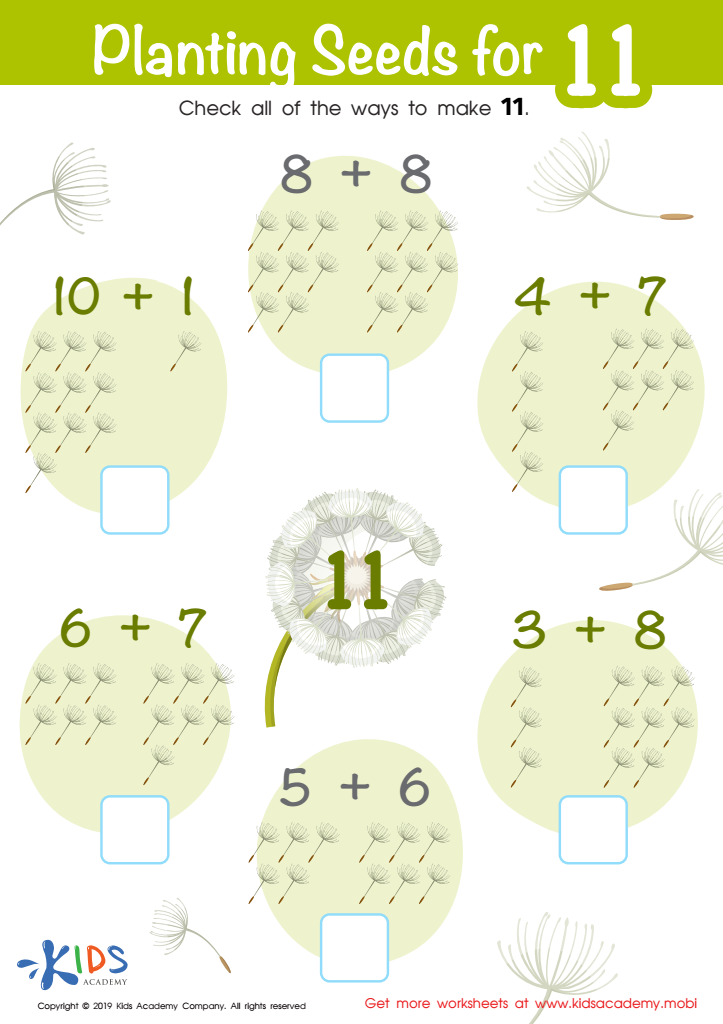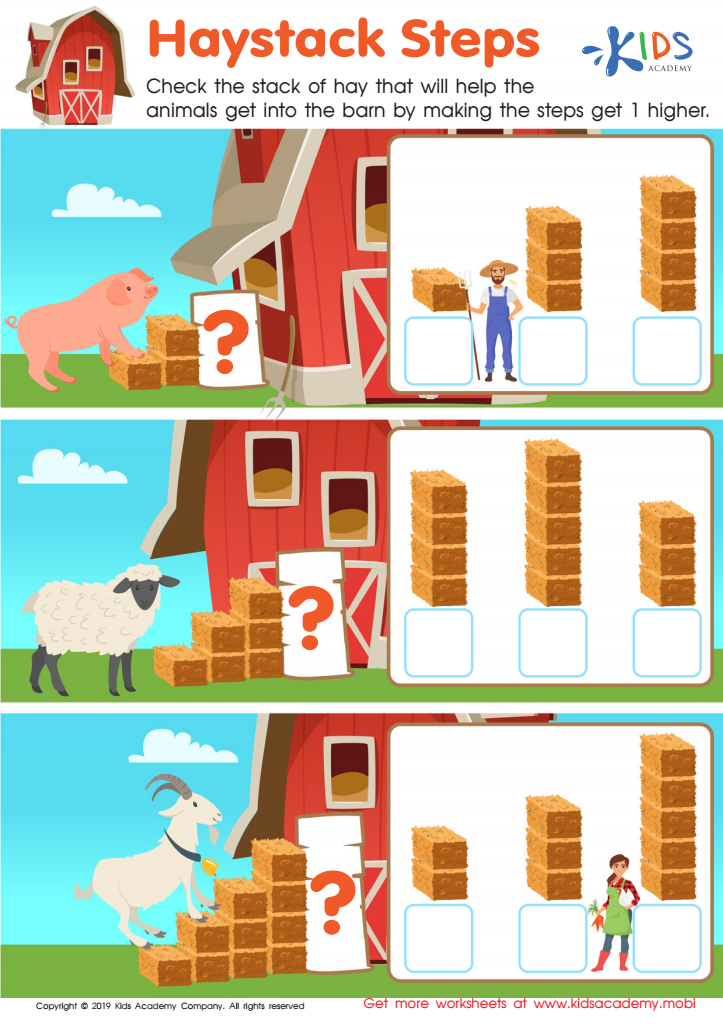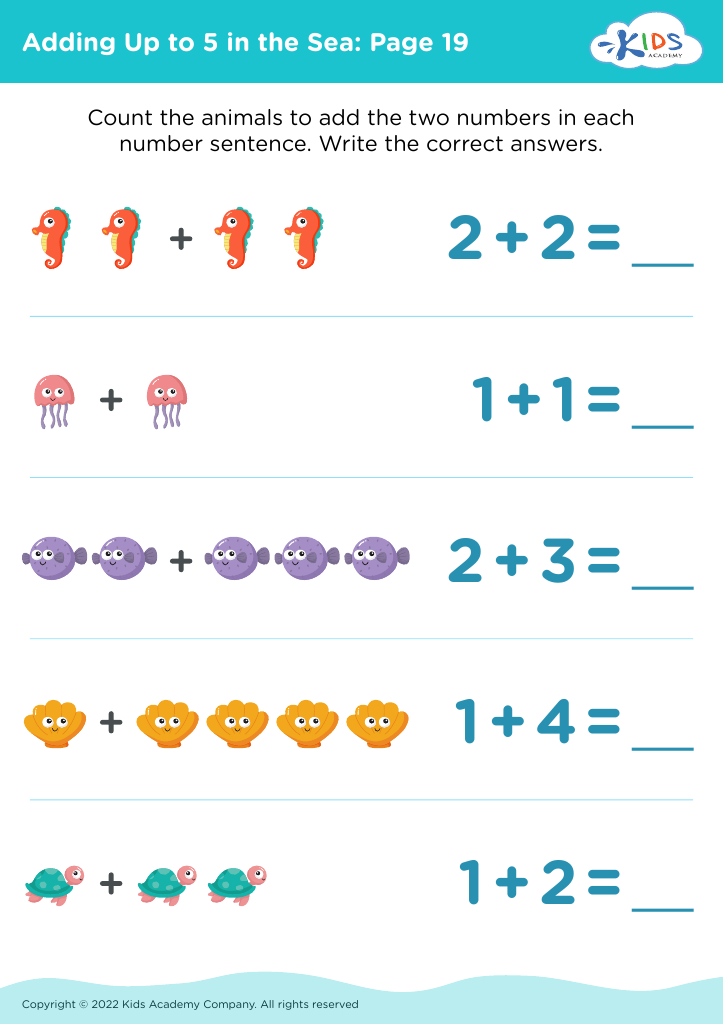Understanding Sequences Addition Worksheets for Ages 4-6
3 filtered results
-
From - To
Enhance your child's math skills with our engaging "Understanding Sequences Addition Worksheets" designed for ages 4-6. These fun and educational worksheets introduce young learners to the basics of sequencing and addition through colorful, interactive exercises. Each worksheet provides step-by-step guidance, helping children understand numerical order and develop problem-solving skills. Perfect for both classroom and home use, these activities make learning math an enjoyable adventure, laying a solid foundation for future math success. Strengthen your child's confidence and curiosity in math with our expertly crafted sequence addition worksheets!


Planting Seeds for 11 Worksheet


Haystack Steps Worksheet
Understanding sequences in addition is fundamental for children aged 4-6 as it lays the groundwork for higher-level math skills and logical thinking. At this age, children’s brains are highly receptive to new information, making it the ideal time to introduce mathematical concepts in an engaging and relatable manner.
Grasping the concept of sequences helps children recognize patterns and predict future events, which are foundational skills not only in math but also in problem-solving and critical thinking. Knowing sequences in addition fosters their ability to count efficiently and understand the incremental relationship between numbers, thereby building a solid base for more complex arithmetic operations.
Moreover, early mastery of sequences boosts confidence. As children experience the predictability and logic of sequences, their anxiety towards math diminishes, cultivating a positive attitude towards learning in general. Activities like using colored blocks, number lines, or fun educational games keep lessons enjoyable and relatable.
Parents and teachers should actively encourage these early experiences, incorporating them into daily routines. By doing so, they support cognitive development, ensure a smoother transition to more advanced math concepts, and instill a lifelong appreciation for learning and problem-solving. Understanding sequences in addition equips young children with essential skills they will use throughout their educational journey and beyond.


 Assign to My Students
Assign to My Students



















